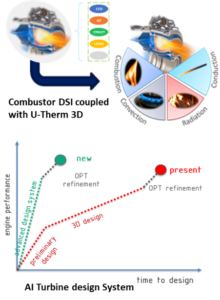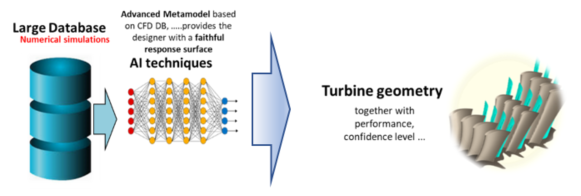In the last decade in all the most important and cutting–edge manufacturing companies there’s an increasing and wide interest in raising profitability, leveraging the (almost) infinite potential provided by a wise use of data internally generated. Data, if used properly, can describe very well different phenomena that together sum up to low quality and/or producibility: this is the starting point to tackle design and manufacturing process weaknesses.
Among all the others, Aerospace companies, due to the complexity of their products, can count on a lot of data that could be collected right from the design phases (model features, testing data, numeric simulation data, etc.) to the production processes (machine sensors data, parts quality information, routing cycle time, etc.). One good way for doing so is represented by applying AI algorithms (with a focus on Machine Learning ones) designed to leverage the opportunities determined by the Big Data (BD) mentioned above.
ACROSS project is fully functional to this view since, looking at the aerospace use cases in particular, the focus is on Big Data exploitation and the use of last generation AI methodology to increase products’ design accuracy (measured against experimental results) while reducing the run-time needed to complete CFD simulation loops.
In this environment, Avio Aero will contribute to both set up requirements for the newly designed ACROSS HPC/BD/Cloud infrastructure and validate it through two aeronautical use cases, related respectively to the aero engines’ combustor and turbine modules simulation. Aim is to introduce innovative methodologies fully exploiting best-in-class technology HPC driven. Some details are explicated in the following:
- develop current Combustor Design System integration process by introducing a Multi-physics/Multi-scale unsteady approach to improve metal temperature prediction, product durability/Life Cycle Cost

- Develop an innovative, data-centric, AI design system for Turbine Aero design improving products’ quality while cutting time-to-production

While depicting these new methodologies in support of next-gen aero-engines family, related software will be also strongly enhanced in terms of integration with hardware to achieve best performance and assure reliable and fast service operations. Furthermore, tasks for investigating specialized hardware accelerators for energy efficiency purposes and easy mechanisms of scheduling jobs will be carried on creating a smart environment welcoming all the innovations introduced thanks to the ACROSS efforts.


